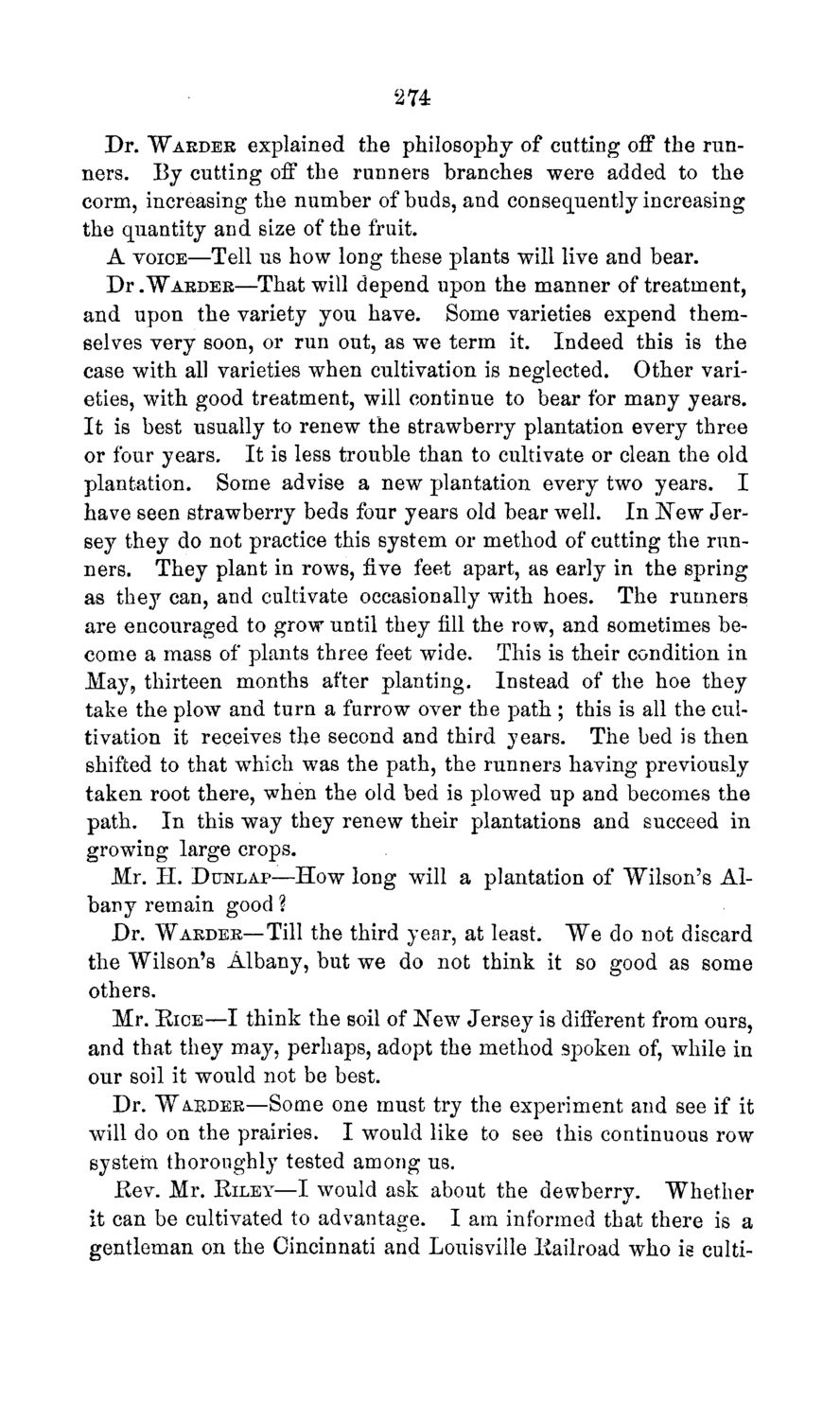| |
| |
Caption: Board of Trustees Minutes - 1869
This is a reduced-resolution page image for fast online browsing.

EXTRACTED TEXT FROM PAGE:
274: Dr. WARDER explained the philosophy of cutting off the runners. By cutting off the runners branches were added to the corm, increasing the number of buds, and consequently increasing the quantity and size of the fruit. A VOICE—Tell us how long these plants will live and bear. D r . WAKDER—That will depend upon the manner of treatment, and upon the variety you have. Some varieties expend themselves very soon, or run out, as we term it. Indeed this is the case with all varieties when cultivation is neglected. Other varieties, with good treatment, will continue to bear for many years. I t is best usually to renew the strawberry plantation every three or four years. It is less trouble than to cultivate or clean the old plantation. Some advise a new plantation every two years. I have seen strawberry beds four years old bear well. In New Jersey they do not practice this system or method of cutting the runners. They plant in rows, five feet apart, as early in the spring as they can, and cultivate occasionally with hoes. The runners are encouraged to grow until they fill the row, and sometimes become a mass of plants three feet wide. This is their condition in May, thirteen months after planting. Instead of the hoe they take the plow and turn a furrow over the path ; this is all the cultivation it receives the second and third years. The bed is then shifted to that which was the path, the runners having previously taken root there, when the old bed is plowed up and becomes the path. In this way they renew their plantations and succeed in growing large crops. Mr. H. DUNLAP—How long will a plantation of Wilson's Albany remain good ? Dr. WARDER—Till the third year, at least. We do not discard the Wilson's Albany, but we do not think it so good as some others. Mr. K I C E — I think the soil of New Jersey is different from ours, and that they may, perhaps, adopt the method spoken of, while in our soil it would not be best. Dr. WARDER—Some one must try the experiment and see if it will do on the prairies. I would like to see this continuous row system thoroughly tested among us. Rev. Mr. RILEY—I would ask about the dewberry. Whether it can be cultivated to advantage. I am informed that there is a gentleman on the Cincinnati and Louisville Railroad who is culti-
| |